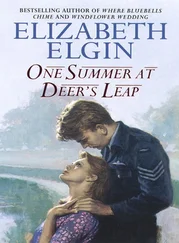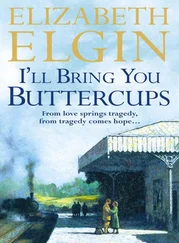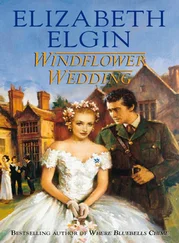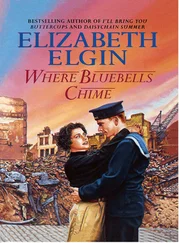‘She won’t. Not ever. I know it too, dearest. So what are we worrying about? I’ll have a talk with Alice and Tom – see what they think. We’ll be able to work something out and had you thought, there might soon be a pardon for deserters, so Tom wouldn’t have anything to be afraid of and never, ever, anything to be ashamed of. He fought in the trenches which is more than Elliot ever did!’
‘Julia! Why ever must you bring him into it? And why, since we are talking about your cousin –’
‘My nasty, over-indulged, awful cousin!’
‘Talking about Elliot,’ Helen went on, calmly, ‘why do you always get so prickly when his name is mentioned and make excuses not to meet him?’
‘Because I detest him, mother. No, I hate him. I dislike his womanizing and his arrogance and I won’t ever forgive his mother for arranging two safe postings for him when he joined the Army. She bought them, for him!’
‘You mustn’t say that of your Aunt Clemmy!’
‘Not even when it’s true?’ Julia jumped to her feet and stood, arms akimbo, at the window, staring out across the lawns and the wild garden to Brattocks Wood. ‘And I hate him because he’s alive – because he hardly got his boots dirty in that war, yet Robert and Giles and Andrew will only be names, soon, on a war memorial!’
And she hated him, too, for what he had done to Alice, and the fact that they could never be sure that one day he might not say, ‘Giles’s son? Are you sure …?’ That was the reason she hated him so much, though she could never speak of it. Giles was Drew’s father as far as her mother was concerned, and if she ever learned the truth of their deception, her heart would break.
‘Oh, darling – forgive me?’ Julia hurried to her mother’s side, falling to her knees, laying her head on her lap as she had done since childhood. ‘And try to understand my bitterness?’
‘I do.’ Helen dropped a kiss on her daughter’s head. ‘I know what it is like to lose the man you love, always remember that, will you, when you think the world is against you.
‘And go upstairs, why don’t you, and take a peep at Drew, then come with me for a walk around the garden, before the light goes. This is such a beautiful evening. Let’s walk quietly, and count our blessings?’
‘Let’s. I won’t be a minute.’ Blessing-counting. It always worked for her mother, Julia thought sadly as she opened the nursery door. Why, then, did it do nothing for her? Why could she never accept Andrew’s death nor cease to want him until her body throbbed and ached from it? And why, no matter what her common sense told her to the contrary, did she still fear the harm Elliot Sutton could do?
‘Alice – I do so long to see you,’ she whispered as she tucked in the cot blankets. ‘You can’t know how I have missed you; how much I would give to have you back here.’
But Alice would never return to Rowangarth.
Clementina Sutton began her scheming the moment she learned about the people next door, in Cheyne Walk. She had been anxious, during the war, about the house standing empty next to hers, worrying that the Army would commandeer it as a billet for soldiers or, worse, that it would be filled with refugees, foreign refugees, thus lowering the area in general and the value of her own property in particular.
She had bought the London house for mixed reasons, though mainly to use for entertaining during the social season when mothers, desperate for good marriages for their daughters, paraded them at dances and parties, at race meetings and concerts like hawkers setting out their stalls.
It was at one of these events she had hoped her eldest son Elliot would meet a suitable young lady and if she came with a title, it wouldn’t matter how poor she was; Clemmy Sutton had money enough to support her. Nor would it matter if she were plain as a pikestaff, so long as she came from a line of good breeders and had the stamina to produce two sons at least. And if that were not all, the favoured young lady would have the ability – and the sense, if she knew what was good for her – to turn a blind eye to her husband’s excursions into infidelity for it was certain that no one woman, no matter how beautiful and bed-worthy, would satisfy her Elliot. Clementina had come to expect it and even to forgive him for it, because it wasn’t his fault he was born so handsome and so attractive to the opposite sex.
Mind, it had to be acknowledged that Elliot always seemed to attract the worst kind of woman; sometimes married ones but most often women that she, his mother, would refuse to touch with the end of a long stick. Ladies of easy virtue. Whores ! Why did they attract him so when he could have had all the pleasuring he wanted free, and in his own bed, if only he’d had the sense to marry!
Of course, with the coming of the war, young women had been quick to throw off their chaperons with alacrity and delight; had raised their hemlines, spoken to young men to whom they had not been introduced and smoked and drank cocktails in public. And they had taken to uniforms with high delight, driving ambulances, being lady typists in the Women’s Army Corps – even nursing as her niece Julia had done; gone to France an’ all to do it, risking life and limb for her stupidity.
Well, now that was over, and young women would be falling over themselves to get their hooks into a husband and husbands not so easy to catch, either. Stood to reason, didn’t it, with many millions of men killed and thank God her own three sons had come through it unscathed, though Nathan had ended up in the thick of it with the soldiers in the trenches and him not caring one jot for his mother’s feelings.
But now she could forget the war and its inconveniences, for she had embarked on the task of seeing her eldest son safely wed – and before another year ran, if she had anything to do with it!
‘I think,’ she said to her husband, ‘that I might have acted a little hastily, putting up that fence …’
‘Fence?’ Edward Sutton lowered the evening paper he was reading.
‘At Cheyne Walk.’
‘Aah. To keep out the gypsies next door?’
‘Not gypsies, Edward.’ She squirmed at her own foolishness. ‘There was a man – a giant of a fellow …’ He had lived in the basement area, emerging from it from time to time to yell at dogs or glower at any passer-by who was foolish enough to linger outside. A thick black beard he’d had and terrified Molly more and more with every sighting. ‘I got it wrong; Molly got it wrong. The dark fellow was a Cossack it would seem, and Cossacks were loyal to a man to their Czar. I should have known better than to listen to her, but what can one expect from a woman of her class?’
‘Or for three shillings and sixpence a week,’ he added, raising his newspaper again.
‘She gets a pint of milk a day and old clothes! And all she does is caretake an empty house …’
‘So am I to take it that the fence will be removed – or at least lowered a couple of feet? Are the new tenants next door all at once acceptable?’
‘I don’t know. One hears such stories. That is why I shall go to London and see for myself; see if they are socially acceptable, that is.’ She might even leave her card, though card-leaving did not have the same social power it once had. Standards had been lowered since the war ended, she sighed. Things would never be the same. The working man had fought a war and thought he was as good as his master, now! ‘Shall you come with me?’
‘I think not.’ Edward Sutton disliked London. Even this house he lived in – Clemmy’s great, ornate, completely vulgar house – was to be preferred to noisy, smoky, overcrowded London. ‘I’m sure you can manage without me.’
Читать дальше












